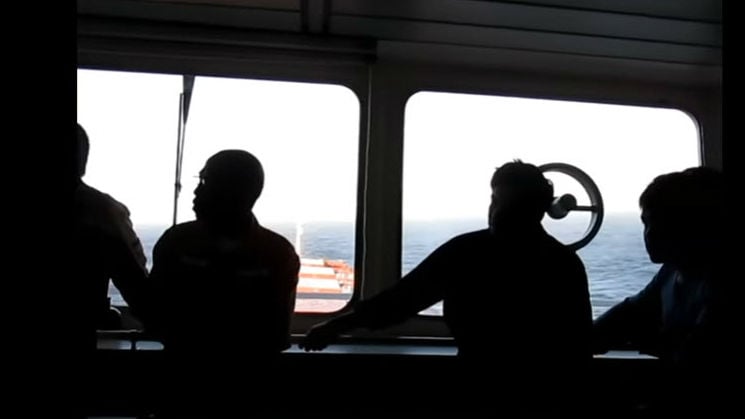Communication and the Need for Seaworthiness

As internet packages for shipboard use become cheaper, it becomes easier to give seafarers the ability to remain in touch with their families on all manner of social media and online voice communications. While this obviously solves the age-old problem of seafarer-family contact, it has also a double-edged dilemma around crew wellness and seaworthiness.
Much has been recently written about access to online communications and entertainment resulting in individual crew members spending more time in his or her cabin, alone, rather than interacting with their colleagues. It is accepted that immediate knowledge of domestic issues which, once the internet exchange is complete, crew members can have no influence over, can cause great emotional stress – though it should be noted there is little research and associated data around this.
The possibilities for adverse mental health issues developing are clear, the answers probably less so. The challenge for the Master and other senior officers, of course, is whether their fellow seafarers are fit to function. Isolation of seafarers is not a new phenomenon but the increasing access to internet communications may actually be making the Master's role, and responsibility to identify and rectify the problem, harder.
A less discussed issue around internet access is the issue of crew seaworthiness and crew awareness. The distractions of technology need not only occur in the private confines of a cabin. There are examples of vessels grounding because the crew decided to deviate from the passage plan and sail near the coast for TV reception/phone reception.
One can see it is only a matter of time before someone collides or has another form of casualty perhaps between two ships head-on in mid-ocean because the watch officers were absorbed in their phones rather than focussing on navigation and, in particular, keeping a good look out. This type of behavior is commonplace on the roads in most countries so it would be reasonable to anticipate that some seafarers might also be tempted to do the same at sea.
Time spent online potentially eats into the seafarer's off watch rest period – to the extent that while crew might not be working, nor will they be truly "resting." There, no doubt, will be cases where officers go for their off watch period and spend most of that period on online and return to their next watch not rested and with their heads full of concerns about what is going on at home.
This scenario is much harder to spot. One might also say: what is the difference to this happening at sea, it must happen all the time in shore jobs? To an extent, this last observation is no doubt true but there is a difference - at sea the effect will be magnified because of the long periods of isolation seafarers endure. The feeling of being unable to resolve any issues in person must surely heighten a seafarer’s feeling of isolation whereas a shore based worker has the opportunity to fix problems at home in the evenings or weekends.
Also, a shore based worker is more likely to be working a conventional working day with a long period of unbroken sleep and will come back to a work place which is a familiar setting. A seafarer, on the other hand, will be on watch system and might, for example, come back to the bridge in a busy seaway in thick fog. One can think of any number of examples which highlight why this issue may be more of a challenge at sea than ashore.
At sea, of course, we must look at the consequences and impacts on seaworthiness - if an officer comes back to the bridge not fully rested and also distracted by news from home etc then his performance may be sufficiently impaired that he is not capable of functioning to a reasonable level even if he tries. In these circumstances, adverse legal consequences are likely to follow.
Operationally, it will probably be a question as to how internet use is managed and also how bridge and engine room performance are monitored. Of course, performance should be managed anyway but internet distractions will no doubt make that job just a little bit harder. Legally, owners and managers have duties of care (regarding mental health and wellbeing on board) to their employees covered in employment contracts and various regulations. However, there are a range of risk management issues relating to seaworthiness which will likely only come to attention as a result of a major incident.
This is not to say seafarers should not have access to the internet or regular links to home. That is unrealistic and impractical. But owners and managers ignoring the connection between internet use, rest, wellbeing and seaworthiness could be a very costly oversight. Certainly crew education and Master training around issue identification should be a bare minimum.
Chris Grieveson is a Partner at Wikborg Rein London.
Ian Teare is a Partner at Wikborg Rein Singapore.
The opinions expressed herein are the author's and not necessarily those of The Maritime Executive.
